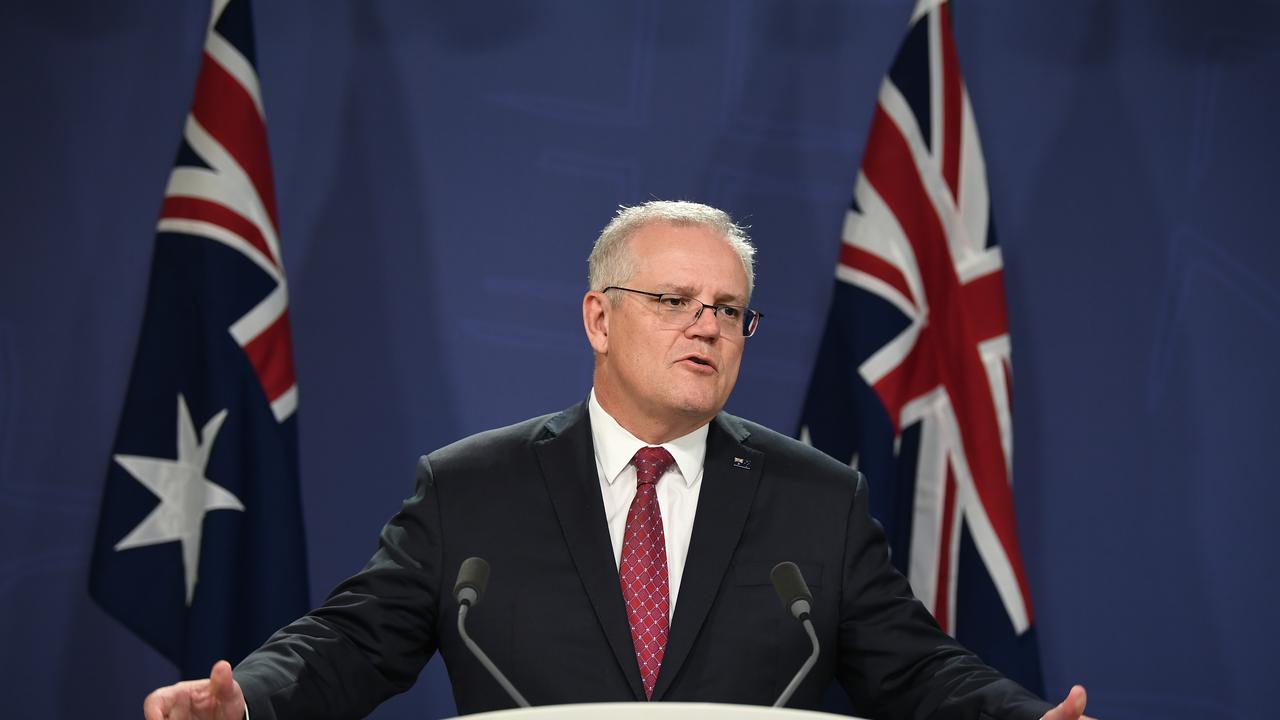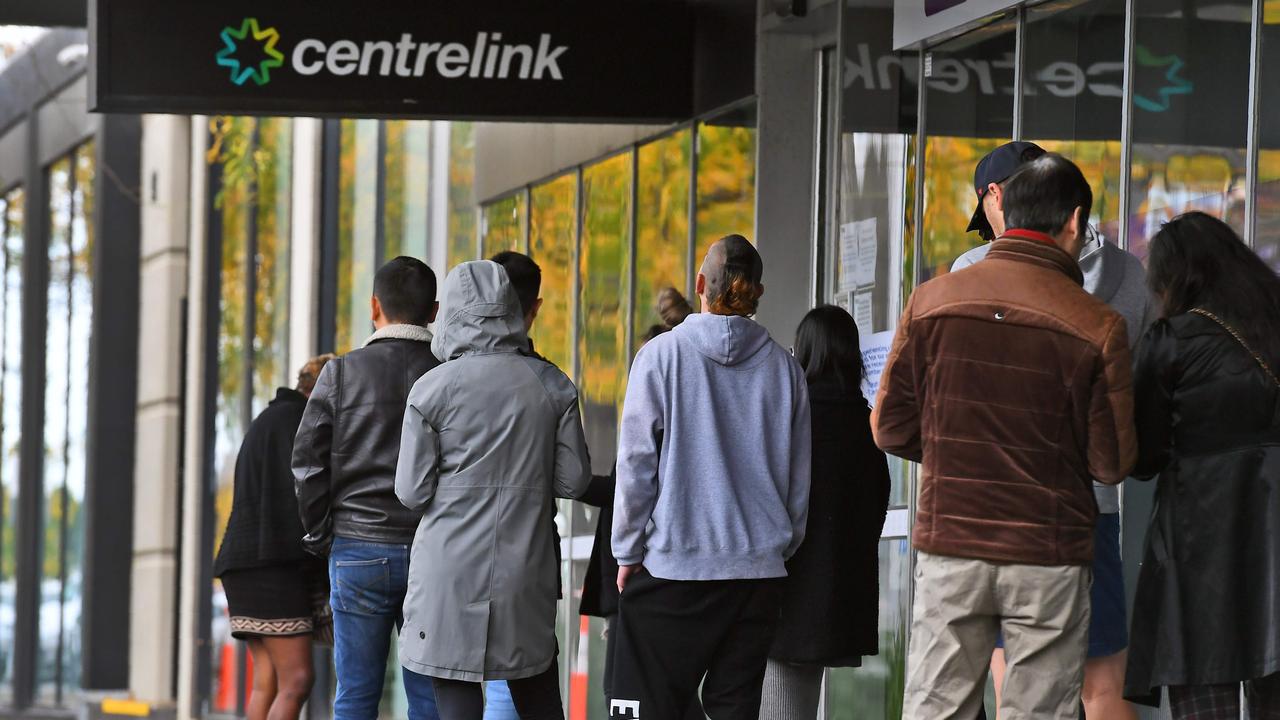JobKeeper 2.0: Expert warns new eligibility rules are a ‘ticking time bomb’
JobKeeper 2.0 will kick in within weeks – but “hardly anyone will be eligible” under the sneaky new rules, an Aussie expert has warned.

The Government’s decision to extend the JobKeeper payment has been widely celebrated – but new rules coming next month mean countless Aussies will soon be left in the cold.
The $1500-a-fortnight wage subsidy was announced by the Government in response to the coronavirus pandemic back in April, and was designed to keep Aussies in jobs as the pandemic played out.
Initially, six million workers were expected to benefit from the scheme – the largest stimulus package ever handed down in the country’s history – and in July, the subsidy was extended for a further six months until March 28, 2021.
When the extension announcement was made, Prime Minister Scott Morrison said the extra assistance would continue supporting hundreds of thousands of Australians who were without work, and offer businesses and their workers a lifeline to not only get through this crisis, but recover on the other side.
“We will have Australians’ backs as we face the ongoing impacts of COVID-19,” Mr Morrison said at the time.
“There is no silver bullet and this is about delivering the support Australians need and the policies our economy requires to reopen, recover and create jobs.
“These supports are a lifeline but our JobMaker plan is also setting Australia up for our country’s recovery. We’re delivering the initiatives and reforms that will help grow our economy and create the jobs we need for the years ahead.”
RELATED: Follow our live coronavirus coverage

But the second version of the scheme comes with a raft of new eligibility criteria – and according to Ben Johnston from Sydney accounting firm Johnston Advisory, many people are unaware of the changes – and the fact they might be shafted as a result.
He told news.com.au the numbers alone proved “hardly anyone will be eligible” the second time around, with the Government earmarking $70 billion for the first version of the scheme, compared with just $30 billion for JobKeeper 2.0.
“The numbers speak for themselves – I reckon only about a third of current JobKeeper recipients will be eligible come October,” Mr Johnston said.
“So many more businesses will be left to fend for themselves.
“There has been an artificial influx (of money) into the economy, and once that is taken away, it will be really telling to see if businesses can survive on their own two feet.”
Mr Johnston said there were a number of key rule changes which would exclude many businesses from the coronavirus lifeline, which in turn would have a flow-on effect for countless employees.
Firstly, he explained that many struggling businesses had sold assets such as vehicles and machinery during the COVID-19 crisis to boost cashflow.
However, that one-off income will now be included in a firm’s turnover, which could push it above the JobKeeper threshold, even though it is not a true representation of finances.
Mr Johnston said it was a “fundamental change” which could see “many businesses miss out” and was especially ironic given the Government had expanded the instant asset write-off scheme to encourage spending in response to the pandemic.
RELATED: Huge tax cuts for Aussies to be brought forward

The scheme was extended to include assets worth up to $150,000 earlier this year, and as a result, Mr Johnston said many business owners had sold off assets or traded in older ones to take advantage of the incentive – which could now turn around and bite them by pushing them out of the running for JobKeeper.
“It was a one-off stimulus measure to entice people (to spend) but it is getting clawed back a bit now by JobKeeper eligibility being affected,” he said.
Secondly, business owners were previously able to choose whether to register and report income for JobKeeper eligibility purposes under an “accrual basis” – reporting all sales and expenses in a period based on invoicing, regardless of whether they actually got paid or paid out during that period – or on a “cash basis”, which only looked at when cash actually came in or out.
That flexibility allowed them to determine which method best reflected the impact COVID-19 had taken on their business.
But under the new rules, that flexibility has been removed and the reporting method – either accrual or cash – will soon have to match the business’s registration preference for business activity statement reporting.
It sounds complicated, but in a nutshell it’s a potential problem as some businesses might only be paid long after work has actually been carried out – a trend which was exacerbated during coronavirus lockdown, when many customers delayed their payments.
“It could be distorting the picture – the Government is basically saying that after six months of this, everything should have levelled out in terms of invoicing and paying, but industry groups say some really late payers might only be paying up now, which means a business might be excluded from JobKeeper even if the work was done prior to the virus,” Mr Johnston said.
Under the new system, sole traders and eligible businesses will also be subject to a tiering method which could mean sole traders who work less than 20 hours a week on average in their business may not receive the full amount.
Mr Johnston said there was a “100 per cent chance” jobs would be lost as a result of the changes, which he likened to a “ticking time bomb”.
“I think they are tightening the JobKeeper eligibility too much too soon. It should have remained at least through the Christmas trading period, when having more money flowing through the economy would have boosted retail sales as well,” he said.
“This is a wake-up call. It will catch a lot of people off guard.”
He said businesses could also only estimate eligibility, but would not know for sure if they qualify until October 1, after the current quarter had ended.
“You can forecast (eligibility), but if a business reporting on a cash basis that is owed money from a big client is paid (at the last minute), it could push eligibility over the line,” Mr Johnston said.
“It is really uncertain which means it’s also uncertain how many employees a business can keep on post-October.
“It will undoubtedly lead to job losses.”




